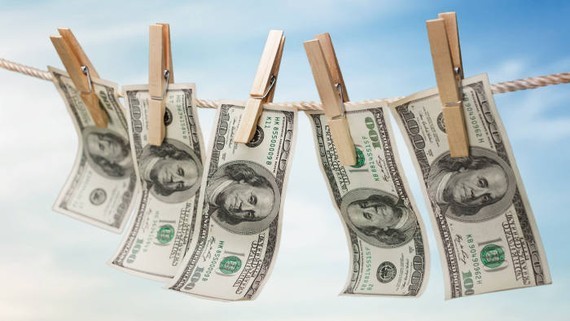 Illustrative photo
Illustrative photo
Money laundering practices
Mr. Nguyen Minh Duc, Deputy Chairman of the National Defense and Security Committee of the National Assembly from Ho Chi Minh City, drew attention to seven very common money laundering practices that are being adopted today. First, a person sets up a company as a cover to buy and sell goods, which is then used to launder money. Second, the person can withdraw cash through online gaming platforms, typically through electronic games or by organizing online gambling up to trillions of dongs, as in the case of Phan Sao Nam and Nguyen Van Duong. In this way, players use cash to exchange cards, also known as slots, to participate in the game. After the game is over, the card is withdrawn and exchanged for cash.
Third, the money is hidden in funds for charity and for travel purposes. Fourth, transfers are made to heirs living outside of the country. Fifth, the person can ask relatives to buy, sell, transfer, give or donate real estate properties. Sixth, the person covers all these activities by buying and selling stocks and bonds. Seventh, the person can provide virtual currency services such as Bitcoins.
Although the current law in Vietnam does not accept virtual currency, there are still associations and organizations that carry out this activity regardless. This is done in a similar way as online gaming by using real money to buy virtual money and then exchanging it back for real money again. According to Mr. Nguyen Minh Duc, the above seven popularly used money laundering tricks today should be assessed seriously and monitored very closely when amending the draft bill at the National Assembly.
During the discussion, Prime Minister Pham Minh Chinh also commented that the amendment to the Law on Prevention and Combating of Money Laundering must take into account the damages caused by the use of virtual currency. Because not much attention has been directed towards it, people are continuing to use it to their benefit. Prime Minister Pham Minh Chinh pointed out that when discussing with the Government, there are two factors to consider, that of regulations and those not specified in the law. The Prime Minister proposed Government regulations on control and sanctions for handling electronic and digitally related currencies.
Referring to issues related to cryptocurrencies, Mr. Tran Tuan Anh, a representative from Khanh Hoa Province and Head of the Central Economic Commission, said that this is a concept that is not yet in legal regulations, but in reality, is prevalent in many business operations. The economies of many countries have already recognized the role of cryptocurrencies, and even have made regulations to ensure the legal use of cryptocurrencies. Therefore, the draft law needs to clearly define and stipulate its use in the country.
In addition, the committee responsible for drafting the new law also needs to study a number of contents related to cryptocurrencies which are used for money laundering from entities with foreign elements, especially in those countries and territories that have legally recognized cryptocurrencies.
Counter measures needed
In order to combat money laundering, the draft bill stipulates the application of temporary measures such as delaying transactions and blocking accounts, sealing, freezing, or even seizing assets. According to Point b, Clause 1, Article 44, the transaction delay is done at the request of a competent state agency in accordance with relevant laws.
However, Mr. Nguyen Minh Duc pointed out that such regulations are either not clear enough nor do they cover a broad spectrum, and agencies can also request to delay a transaction. This greatly affects production, businesses, and many other economic activities. Therefore, it should be clearly stated that it must be conducted at the request of competent state agencies who can deal with criminal proceedings, examine, verify, report crimes, investigate, prosecute and even hold a trial.
According to Mr. Tran Tuan Anh, a representative of the National Assembly, the committee responsible for drafting the bill needs to clarify a reasonable basis for doubting and delaying a transaction, otherwise, it will be very easy to abuse. Mr. Anh believes it is best to make specific provisions in the draft law to ensure unrestricted human rights and at the same time be consistent with the 2013 Constitution laws. He suggested that the draft also needs more specific regulations on authority, responsibility, conditions for delaying transactions, freezing accounts, sealing, freezing, and seizing assets to ensure transparency and clarity and avoid abuse of power.
Mr. Bui Si Hoan, a representative from Hai Duong Province said that the ownership and disposal rights of the individual owner were stipulated in the 2013 Constitution and the 2015 Civil Code. Therefore, in order to avoid abuse or arbitrary application of provisional measures without legal basis, and to ensure accuracy when applying provisional measures, it is necessary to study additional regulations on the responsibilities of competent authorities.
Mr. Nguyen Minh Duc, another representative of the National Assembly, suggested that in order to prevent crime investigating officers from taking advantage, abusing, or exceeding their responsibility, the draft should supplement with the provision that criminal procedures dealt by competent authorities must be held responsible for delays in transactions. Such regulations must be strictly followed and not affect economic activities, and at the same time raise the issue of liability for prosecuting agencies.
























